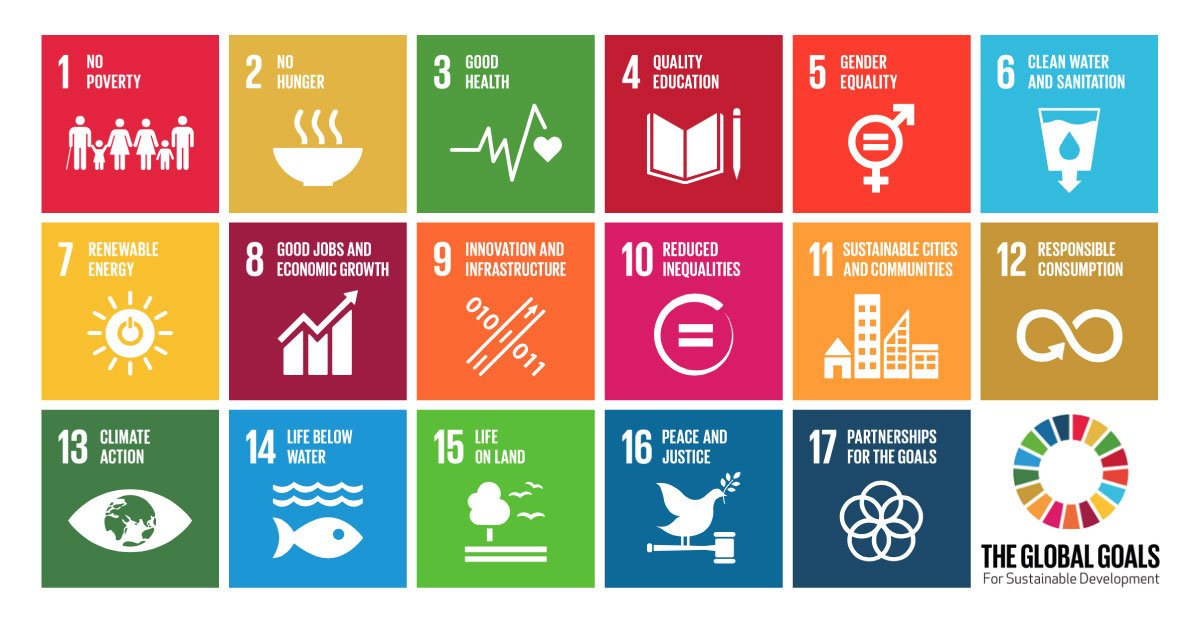
SDGs: The collaboration of a lifetime
SDGs: The collaboration of a lifetime
It's time for the biggest collaboration of your career.
The United Nations have a 'to-do list' featuring 17 big ticket issues, and they need your help.
The Sustainable Development Goals, or SDGs, are a set of 17 interconnected goals set forth by the United Nations. They serve as a blueprint to achieve a better and more sustainable future for all by 2030. These goals address various global challenges we face, including poverty, inequality, climate change, environmental degradation, peace and justice, and more.

The UN calls for businesses, not-for-profits and the public sector to work together as a unified force to achieve them.
So why can't it just be up to innovators and the government? Oscar Auliq-Ice, Founder of the Icetratt Foundation for Social Investments, puts it well:
"The future of social impact is no longer about looking up to a select few who have some kind of rare gift for implementing innovative ideas. Every individual and organisation has a role to play in mobilising skills, talents, and life experiences to move towards a more just and equitable world where all have what they need to survive and thrive in life.”
Aligning to the SDGs is also a highly rewarding initiative. People want to feel that they're part of something greater, and the SDGs offer a long-term vision and a unified approach.
So what can each organisation do?
Businesses can contribute significantly to the SDGs. Here's how:

Sustainable Business Practices: This involves integrating sustainability initiatives for people, process and planet into the core strategy. It can mean ensuring there are fair wages, safe working conditions, a net zero target, or ethical sourcing and supply chain. Learn more.
Innovation and Investment: Businesses can invest in new technologies or models that directly contribute to the SDGs, such as renewable, circular or digitised innovations.
Become B Corp Certified: By becoming a B Corp, businesses can align their operations to high standards of social and environmental performance, transparency, and accountability. The SDGs play a key role in B Corp certifying practices. Learn more.
Public organisations play a vital role in achieving the SDGs:

Policy-making or advisory: Governments and governing bodies can develop, advise on or recommend policies that promote sustainable development. This includes everything from environmental regulations to greater social welfare.
Aligned Public Services: Through the provision of SDG-aligned public services like education, healthcare, and infrastructure, governments can directly contribute to several SDGs.
Funding and Support: Public bodies can provide financial support or incentives for sustainable initiatives, whether they're led by businesses or NFPs.
Not-for-profit organisations can also contribute in significant ways:

Advocacy: Global NFPs often work to raise awareness about the SDGs, and to advocate for policy changes to support them.
Share the Action: Many NFPs’ work on the ground naturally makes a direct impact on the SDGs. However, we encourage all organisations (including NFPs) to report on the full set of SDGs for global sustainable practices.
Continue to Innovate: NFPs have access to unique innovation partners to understand the challenges related to the SDGs better and develop innovative solutions to these challenges. All NFPs can plan or dedicate resources to support this.
Remember, every contribution counts. We all have a role to play in building a more sustainable future.
SDG alignment forms part of our New World ESG advisory, working with our partners to thrive in the full spectrum of ESG practices.
